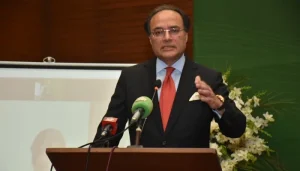The Sensex reclaimed the 60,000 mark after seven weeks, despite rising Covid-19 cases, as the benchmark indices closed higher for the fourth straight session on Wednesday.
Inflows from foreign portfolio investors (FPIs), expectations of good quarterly results, and optimism triggered by positive macroeconomic numbers enthused investors. The Sensex gained 367 points, or 0.6 per cent, to close at 60,223, while the Nifty rose 120 points to end the session at 17,925 cent.
After being net sellers for about three months, FPIs have again turned net buyers since the beginning of this year. Analysts said FPIs had become net buyers because India had managed to keep Omicron under reasonable control so far, and that there was still hope for economic revival remaining unaffected. On Wednesday, FPIs bought shares worth Rs 336.8 crore, provisional data from the exchanges showed.
“FPIs tend to buy in a concentrated manner. That’s the reason the market is showing resilience. The positives have been factored including the revival of the economy. Valuations don’t stand out. India has dealt with the Omicron variant slightly better than others. If the Omicron crisis does not warrant a strict lockdown, economic performance could continue. It’s a relative play as of now,” said U R Bhat, co-founder, Alphaniti Fintech.
“In December itself, there was some impact of Omicron, but still GST (goods and services tax) collections have been reasonably good. It is possible to argue that the economy is quite resilient,” added Bhat.
However, some analysts said concerns about the pandemic, rate hikes, and inflation could weigh on the markets in the days to come. Amid surging Covid-19 cases, weekend curfew has been imposed on the national capital, and the mayor of financial capital Mumbai has said tighter restrictions might be necessitated if cases continue to rise. Hong Kong on Wednesday announced flight bans from eight countries, including India, and tighter restrictions on public gatherings.
Moreover, the US Federal Reserve is moving ahead with its plans to withdraw its bond purchases and hike interest rates at a much faster pace than expected.
“The market trend might be volatile in the near term because of potential risk from the Omicron variant, upcoming Budget, and fragile global cues. In the long run, strong earnings delivery along with positive macroeconomic data would hold the key to drive the markets upwards,” said Siddhartha Khemka, head of retail research, Motilal Oswal Financial Services.
The market breadth was slightly positive, with 1,786 stocks gaining and 1,606 declining on the BSE. As many as 527 stocks were locked in the upper circuit, and 432 hit their 52-week highs. Close to two-thirds of the Sensex constituents gained. HDFC Bank, ICICI Bank, Kotak Mahindra Bank, and Bajaj Finance contributed the most to the index gains, rising 2.3 per cent, 1.9 per cent, 3.7 per cent, and 4.4 per cent, respectively. Banking stocks gained the most and its sectoral index gained 2.4 per cent on the BSE.












